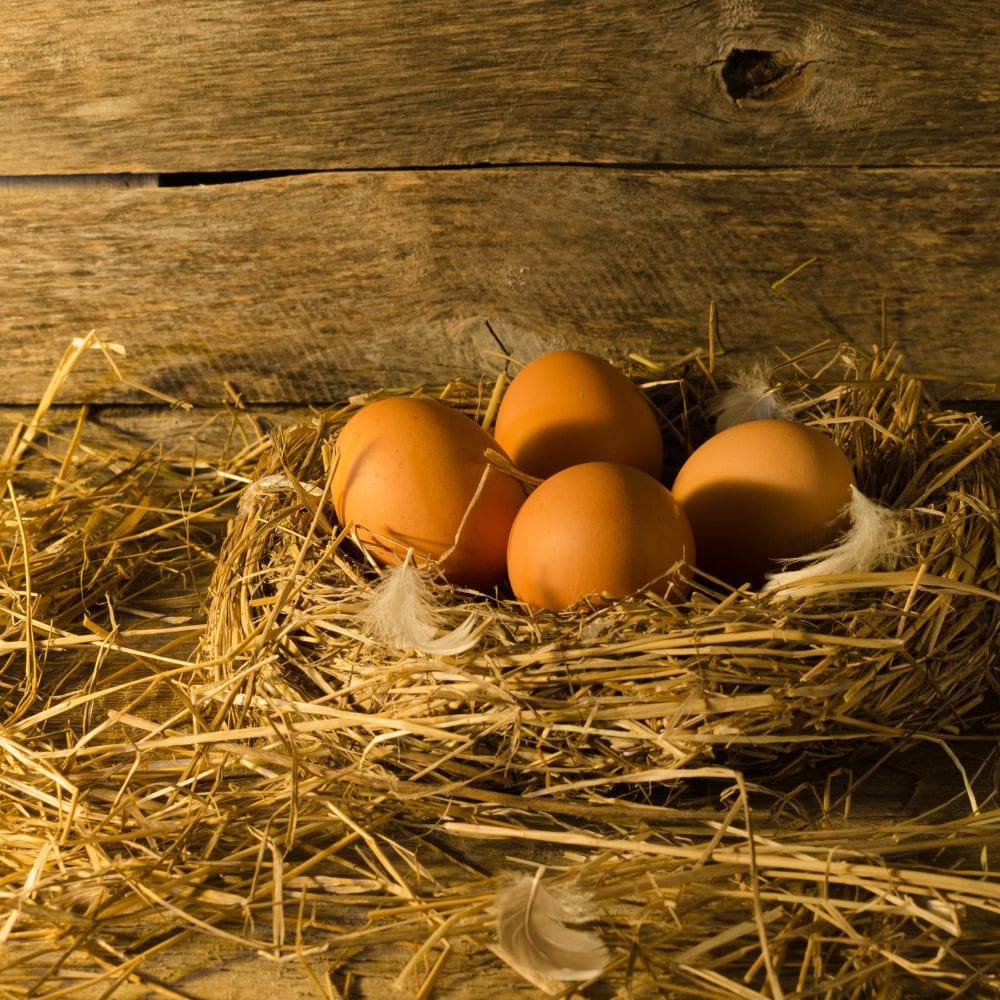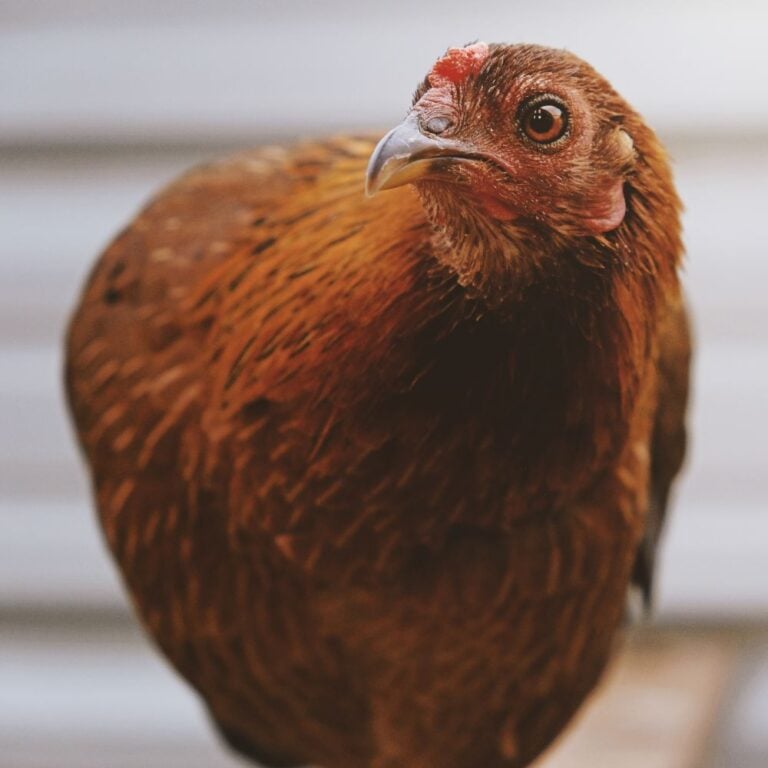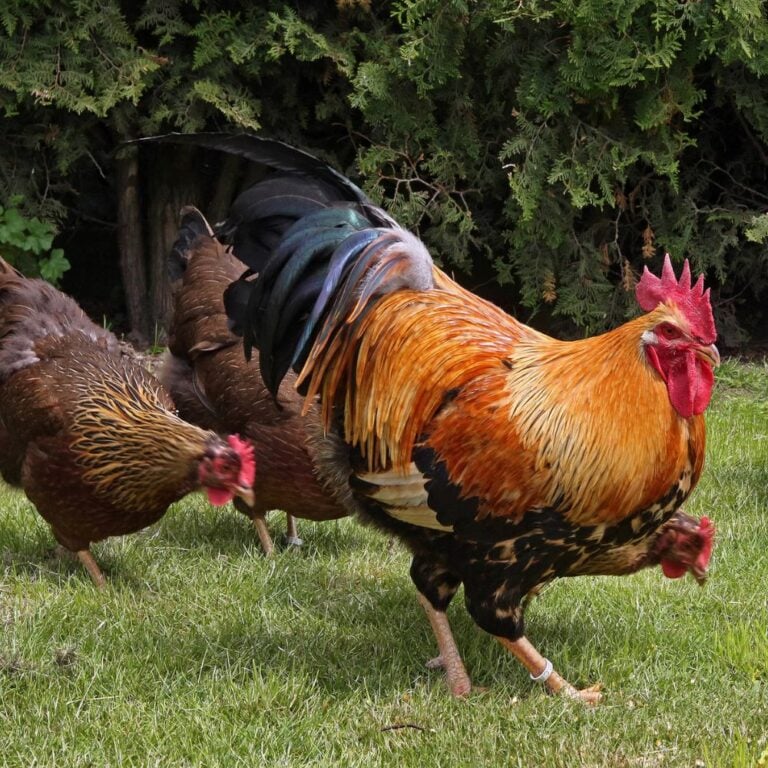Wondering how to tell if eggs are good? We’ve all been there.
You open the fridge, excited to cook a delicious omelet or a healthy scramble. You open the egg carton, only to notice that the expiration date stamped on the cardboard has long since passed. Are they good eggs or are they bad eggs?
What’s an egg-lover to do? Don’t rush to toss the carton in the trash.
A stinking, horrible smell of sulfur is a telltale sign that you have a rotten egg on your hands. This sulfurous smell means your eggs are no longer edible, but it’s not the only technique that you can follow. Expiration dates are good estimations of how long you can let eggs sit in your refrigerator – but as mere approximations, they aren’t always reliable on their own.

Here are some of the best methods of how to tell if eggs are good – with or without an expiration date.
Table of Contents (Quickly Jump To Information)
When Do Eggs Usually Go Bad?
Believe it or not, not all eggs go bad at exactly the same time – and you can’t always trust the posted dates.
Remember that the estimated freshness and longevity of eggs are determined by the American Egg Board, an association whose job is to increase national demand for products on behalf of U.S. egg producers. It wants you to buy more eggs, so the dates are going to be more conservative.
Nevertheless, these dates are good first lines of defense against food-borne illness. Eggs can usually last in the refrigerator for about 30 days after packing. When you look at your egg carton, you may see a variety of dates, including a sell-by, expiration, or pack-by date. Usually, you’re safe to eat eggs within 21-30 days of any of these dates.
The quality of the egg will usually start to decline after a certain date, but will still usually be safe to eat. Unfortunately, if you are eating your own farm-fresh eggs (instead of store eggs), determining freshness and safety without a sell-by date can be a bit more tricky.
Usually, raw whole eggs are safe to eat for about four or five weeks. While raw eggs that have been processed in any way (such as separated egg whites and yolks or hard-boiled eggs) are only safe for about two to seven days. Once heat has been applied or the eggshell has been removed, there is a greater likelihood that bacteria is going to interfere with the freshness of the egg.
How To Tell if Eggs Are Good Past the Expiration Date
Unless you’ve cooked the eggs or altered them in some way, don’t toss them just because the expiration date has passed. As with meat and produce, it’s pretty easy to tell whether your eggs have gone bad without needing to look at the expiration date.
Remember, refrigeration preserves the quality of the egg quite dramatically, so as long as your eggs have been stored properly, you have a bit of extra insurance.
Here are some easy methods of how to tell if your eggs are good.
Step One: The Visual Inspection
If you’ve already sniffed your eggs and can’t tell whether they’ve gone bad or not, using your eyes is another great way to tell whether your eggs are safe to eat.
Before cracking your egg, make sure the shell is not cracked. A crack can not only indicate the presence of bacteria, but a crack can cause an egg to spoil more quickly than it would if it were contained in an unbroken shell.
You should also look out for a slimy or powdery appearance on the egg. A powdery appearance can indicate mold, while sliminess can be a sign of bacterial growth.
Step Two: Eggs in the Bowl
It sounds like the name of a fun Easter scavenger hunt. However, this method simply refers to the act of placing your egg in a bowl of water to determine whether it is still fresh or not. This is also called “the egg float test” or the “water test.”
Eggs are porous, and the liquid that is contained inside the egg evaporates over time changing the size of the air pocket within. The liquid is replaced with additional outside air. When the egg fills with air, it will float.
Therefore, by placing an egg in a bowl filled with cold water, you can determine whether it is safe to eat. If the egg sinks to the bottom or lays flat on its side is still fresh, while one that floats to the surface is no longer fresh.
What if your egg stands on one end at the bottom of the bowl? It’s still probably safe to eat, but it won’t be as fresh.
Step Three: Audio Test
The audio test works according to the same science as the one above – older eggs begin to fill with air. This is sometimes called the shake test.
To conduct the audio test, simply hold an egg to your ear and shake it. You’ll need to have good hearing, but if you can hear a sloshing sound inside the egg, you need to toss it – it’s not safe to eat.
Step Four: Crack ‘n Sniff
Here’s where we get more advanced. Perhaps you’ve tried the steps above and aren’t convinced that your egg is fresh but you also don’t know for sure that it’s spoiled. Here’s what you need to do.
Crack the egg into a pan. Before you continue cooking, it’s important to make sure the egg isn’t loaded with nasty egg-borne bacteria.
Take a close look at the egg. If it’s fresh, the yolk will be a bright yellow or orange and the whites should stay right in place. They may spread out a little bit, but they won’t be overly runny. Similarly, the yolks of older eggs may appear flattened or discolored. In particular, keep an eye out for any black, blue, pink, or green shades in the whites and yolk – this can be a sign of bacterial growth.
If either of these criteria is evident when you crack your eggs, discard them. Still not convinced? Give the questionable egg in the pan the sniff test. If it doesn’t have an unpleasant odor, it’s probably safe to eat, but you want to be sure to avoid food poisoning.
Tip: you might want to hard boil the rest of the eggs as they’ll taste fresher this way.
Step Five: Flashlight Test
If you have ever hatched your own baby chicks at home, you might already be familiar with the flashlight test, also known as “candling” an egg. You can easily use the candling or flashlight method as a way to tell if eggs are good in the kitchen, too.
To do this, venture into a dark room with a flashlight. Any small flashlight or reading light will do. Place the flashlight so that the light is shining up into the large end of the egg. Tilt the egg and move it quickly from left to right.
This will allow the contents of the egg to be illuminated. Look closely at what’s inside. You should be able to see the air cells in the egg. The fresher an egg is, the thinner and smaller the air pockets will be.
How to Keep Eggs Fresher – For Longer
Do you feel as though your eggs begin to spoil as soon as you get them home from the grocery store? If so, you could be making a simple mistake in storing them. Although some refrigerators are equipped with egg compartments in the door, this is actually not the best place to store them. They will experience too many temperature fluctuations here.
Instead, store your eggs in the main part of the refrigerator, where it’s colder and the temperature is more stable. If you are eating eggs from your own chickens, avoid washing them until you’re ready to use them.
The outer layer of the egg contains something called a bloom. This is a covering that helps prevent the buildup of bacteria and also works to preserve freshness. And don’t worry if you see a blood spot in the yolk. It’s perfectly safe to eat and is simply a sign of a fertilized egg.
You can also freeze your eggs if you have more than you know you will use in a given time frame. Frozen eggs will cook up just like fresh eggs, but the freezing process will help to keep your eggs fresher for longer.

Why It’s Important to Know How to Tell If Eggs Are Good
You may eat eggs every day, or they may be an occasional treat in your household.
Whatever the case may be, it’s important for you to know how to tell if eggs are good or not. Not only can these strategies prevent you from unnecessarily throwing away safe, delicious eggs, but they can also help keep you safe from foodborne illnesses.
Food-borne diseases that are caused by bacteria, such as Salmonella, often produce eggs that look, smell, and appear completely normal. Therefore, it’s not only important to conduct these other tests but to make sure you completely and fully cook your egg to a safe temperature before you go ahead and eat it.
And remember, even if you can’t eat your eggs because they’re past their prime, there are plenty of ways to avoid wasting them. Use the eggshells in your garden as a fertilizer or pest repellent. In the meantime, maybe whip up some cereal for breakfast instead.
Summary
While it is important to avoid eating a contaminated egg, there are clearly ways to determine whether or not your eggs are safe. We hope these tips and videos help you feel comfortable with the process. Just remember, if in doubt don’t eat them. It’s always better to be safe than sorry.
Maat van Uitert is a backyard chicken and sustainable living expert. She is also the author of Chickens: Naturally Raising A Sustainable Flock, which was a best seller in it’s Amazon category. Maat has been featured on NBC, CBS, AOL Finance, Community Chickens, the Huffington Post, Chickens magazine, Backyard Poultry, and Countryside Magazine. She lives on her farm in Southeast Missouri with her husband, two children, and about a million chickens and ducks. You can follow Maat on Facebook here and Instagram here.






